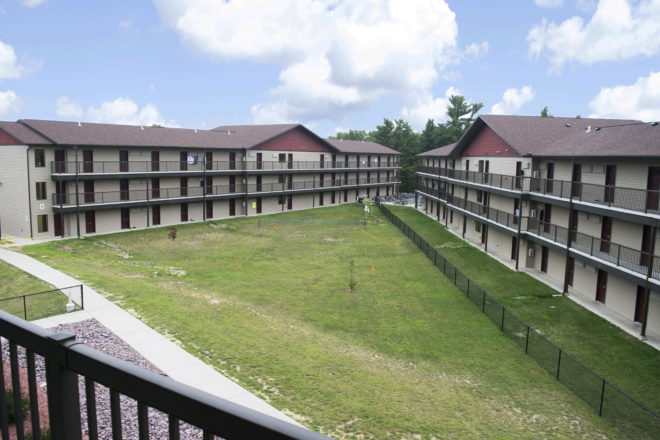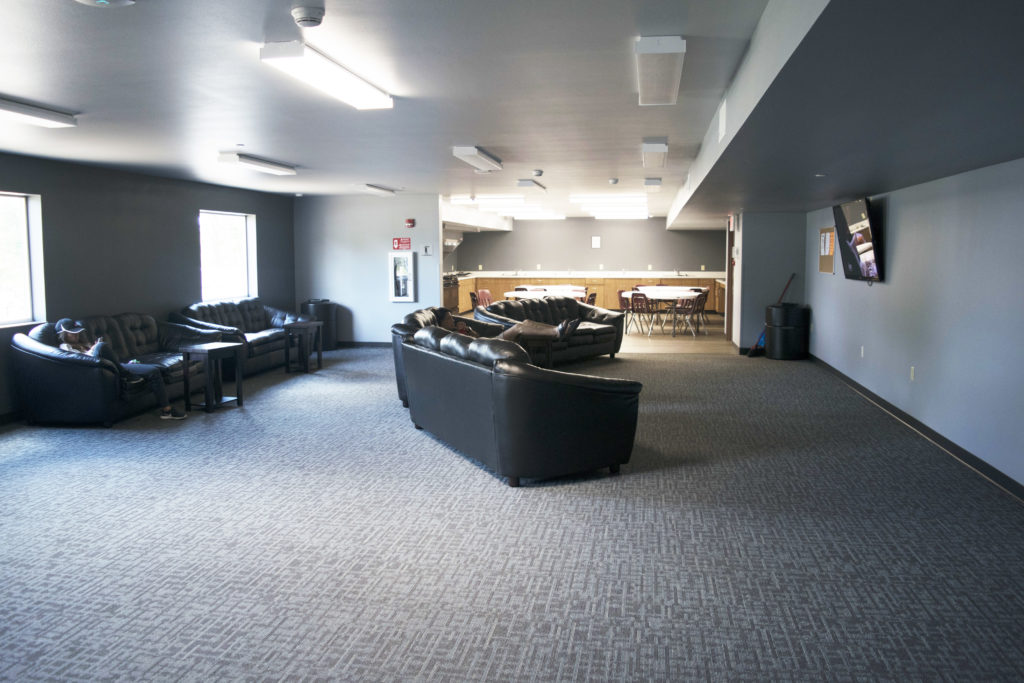Sustainability 2019: Housing Ideas – In Wisconsin Dells, Dorms Fill Housing Void
- Share
- Tweet
- Pin
- Share

The struggle to find affordable housing is more than a lifestyle problem in Door County – it’s a workforce problem.
People are already turning down jobs or shying away from applying for jobs on the peninsula because of a lack of housing. Phil Berndt, membership director of the Door County Visitor Bureau, offered a seasoned perspective on it.
“Some may question why a community should take on any part of this liability,” he said, “but without an adequate workforce, we soon lose out on the quality experiences that make Door County such a special place – and that’s a mindset that may take time to cultivate.”
Through his work with the destination-marketing organization Destinations International and the J-1 Summer Work Travel Program, Berndt has had the opportunity to examine the housing shortage in seasonal destinations around the globe and sees a potential model in Wisconsin Dells. There resorts have built dormitories for their workers, including 4,000 J-1 students every year.
Before the dorms were built, conditions were cramped, with multiple students living in a hotel room at a time. There were health and safety concerns, too: spaces often lacked proper managers or laundry facilities, Berndt said. The hotels clashed with the desired aesthetic of the area with hanging laundry and bikes visible to visitors.
Now workers in the Dells have safe alternatives. Hiawatha Residence Hall, for example, built in 2014, is the most popular destination for seasonal workers – mostly J-1 students who arrange housing through their employers – because it’s close to many of the resorts and restaurants where these students work.
There’s a laundry facility, a community space and an administrative office. Each dorm floor has community kitchen spaces where residents use their own utensils and cleaning supplies. Rooms tend to have three or four beds each, a full bathroom, microwave, fridge and air conditioning. Residents also receive pillows and blankets.
In Door County, neighbors have opposed proposals for dorms because they think such facilities would encourage a party atmosphere. Discussion of building a dorm on land in the Village of Egg Harbor halted in 2016 because business owners said it wasn’t financially viable. The 20-unit, 40-bed proposal would have required a long-term commitment from business owners at $480 per bed, per week.
But there are two local examples of seasonal dorm operations: Landmark Resort has successfully operated a dorm for decades, and Birch Creek Music Performance Center houses summer students ages 13 to 19 in two dorms in the Town of Egg Harbor.

Birch Creek’s original dorms date to the 1980s, with the most recent renovations and additions made in 2008. The nonprofit funded the structures through donations, and Executive Director Mona Christensen said they serve as more than housing and include kitchens and practice rooms, which makes it hard to estimate their exact cost.
But the housing has been successful for both residents and faculty. Strict policies and a 10-to-one student-to-counselor ratio ensure that everyone is well behaved.
Hiawatha employs similar rules to ensure that the dorms are kept quiet and in good shape. Eviction is the most common punishment listed on its Occupant Rules page – even for lack of cleanliness.
No drugs and alcohol are permitted on the premises; no guests are allowed on any part of the property; and gatherings of six or more people are prohibited, along with common-sense rules such as no smoking in the buildings, no tampering with fire equipment, no weapons and no violence. Rooms are inspected weekly for cleanliness, and residents with repeated violations are evicted.
The facilities are also designed for safety. All residents receive a key card that they must present at any time while on the property. Local police and security officers patrol the grounds, and security cameras monitor all indoor and outdoor common areas.
With these rules and safety precautions in place, it seems unlikely that a party atmosphere could exist. Not only would breaking rules result in eviction, but it would also result in potentially losing a job – sponsors for J-1 workers and J-1 employers are notified when a situation occurs.
“It’s my understanding that housing is treated as a privilege extended to those who agree to adhere to the common-sense rules that preserve the quality of life in the dorms,” Berndt said. “Most of the employees who apply to live in the dorms are students who are working two or three jobs and rely on the dorm as a safe, quiet place where they can sleep. Employees who don’t subscribe to this mindset should look elsewhere for housing.”
Mary Maniak, manager of the Hiawatha residence halls, said she’s had no issues with partiers during the five years she’s been there. The management has taken a three-strikes-you’re-out kind of approach in enforcing the strict rules, but they also encourage a fun and friendly atmosphere, sometimes hosting organized events in the common areas.
Rent is affordable for the residents as well. It varies, but during the busy season, rent is $90 per week. In the off-season, it’s $75 per week.
“Hopefully we, as a community, will take this opportunity to lead the industry – before our reputation is compromised,” Berndt said.

